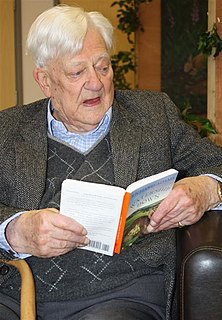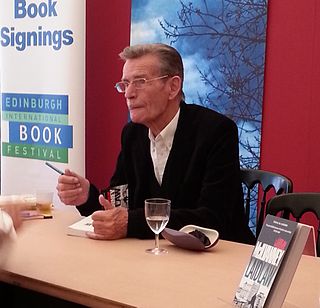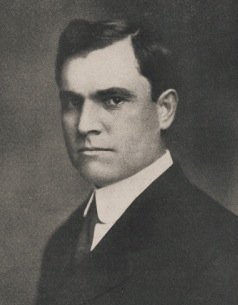A Quote by Thomas Aquinas
If there were some solitary or feral man, the passions of the soul would be sufficient for him; by them he would be conformed to things in order that he might have knowledge of them. But because man is naturally political and social, there is need for one man to make his conceptions known to others, which is done with speech. So significant speech was needed if men were to live together. Which is why those of different tongues do not easily live together.
Related Quotes
When a man sought knowledge, it would not be long before it could be seen in his humbleness, his sight, upon his tongue and his hands, in his prayer, in his speech and in his disinterest (zuhd) in worldly allurements. And a man would acquire a portion of knowledge and put it into practice, and it would be better for him than the world and all it contains - if he owned it he would give it in exchange for the hereafter.
And even if these scenes from our youth were given back to us we would hardly know what to do. The tender, secret influence that passed from them into us could not rise again. We might be amongst them and move in them; we might remember and love them and be stirred by the sight of them. But it would be like gazing at the photograph of a dead comrade; those are his features, it is his face, and the days we spent together take on a mournful life in the memory; but the man himself it is not.
What is a Poet? He is a man speaking to men: a man, it is true, endued with more lively sensibility, more enthusiasm and tenderness, who has a greater knowledge of human nature, and a more comprehensive soul, than are supposed to be common among mankind; a man pleased with his own passions and volitions, and who rejoices more than other men in the spirit of life that is in him; delighting to contemplate similar volitions and passions as manifested in the goings-on of the universe, and habitually impelled to create them where he does not find them.
When the man was disgraced and told to go away, he was allowed to ask all the animals whether any of them would come with him and share his fortunes and his life. There were only two who agreed to come entirely of their own accord, and they were the dog and the cat. And ever since then, those two have been jealous of each other, and each is for ever trying to make man choose which one he likes best. Every man prefers one or the other.
If we are made in some degree for others, yet in a greater are we made for ourselves. It were contrary to feeling and indeed ridiculous to suppose that a man had less rights in himself than one of his neighbors, or indeed all of them put together. This would be slavery, and not that liberty which the bill of rights has made inviolable, and for the preservation of which our government has been charged.
If men were wise they would see that the affection that God has implanted in us is amply sufficient, when not weakened by artificial aid, to ensure permanence of union; and if they would have more faith in this all would go well. To tie together by human law what God has tied together by passion, is about as wise as it would be to chain the moon to the earth lest the natural attraction existing between them should not be sufficient to prevent them flying asunder.
Four experts had an appointment with an ordinary man. They needed him to ratify their findings, or anything they achieved would be meaningless. As they drove to meet him, they knocked down a man on the road. He was dying. If they tried to save him, they might miss their appointment. They decided that their appointment, which concerned all of us, was more important than the life of one man. They drove on to keep their appointment. They did not know that the man they were to meet was the man they had left to die.
They rode like men invested with a purpose whose origins were antecedent to them, like blood legatees of an order both imperative and remote. For although each man among them was discrete unto himself, conjoined they made a thing that had not been before and in that communal soul were wastes hardly reckonable more than those whited regions on old maps where monsters do live and where there is nothing other of the known world save conjectural winds.
There is a kind of grandeur and respect which the meanest and most insignificant part of mankind endeavor to procure in the little circle of their friends and acquaintance. The poorest mechanic, nay, the man who lives upon common alms, gets him his set of admirers, and delights in that superiority which he enjoys over those who are in some respects beneath him. This ambition, which is natural to the soul of man, might, methinks, receive a very happy turn; and, if it were rightly directed, contribute as much to a person's advantage, as it generally does to his uneasiness and disquiet.
If I were going to construct a God I would furnish him with some ways and qualities and characteristics which the Present One lacks... He would spend some of His eternities in trying to forgive Himself for making man unhappy when He could have made him happy with the same effort and He would spend the rest of them in studying astronomy.
Some determined advocates of the vegetable system maintain, that the teeth and stomach of the monkey correspond, in structure, very closely with that of man, yet it lives on fruits - therefore if man followed nature, he would live on fruits and vegetables. But though the anatomical likeness between man and monkeys is striking, yet it is not complete; the difference may be and doubtless is precisely that which makes a difference of diet necessary to nourish and develope their dissimilar natures. Those who should live as the monkeys do would most closely resemble them.
The average man is what his environment and his superstitions have made him; and their function is to make him an ass. He can't add up three or four new circumstances together and perceive what they mean; it is beyond him. He is not capable of observing for himself; he has to get everything at second-hand. If what are miscalled the lower animals were as silly as man is, they would all perish from the earth in a year.





































